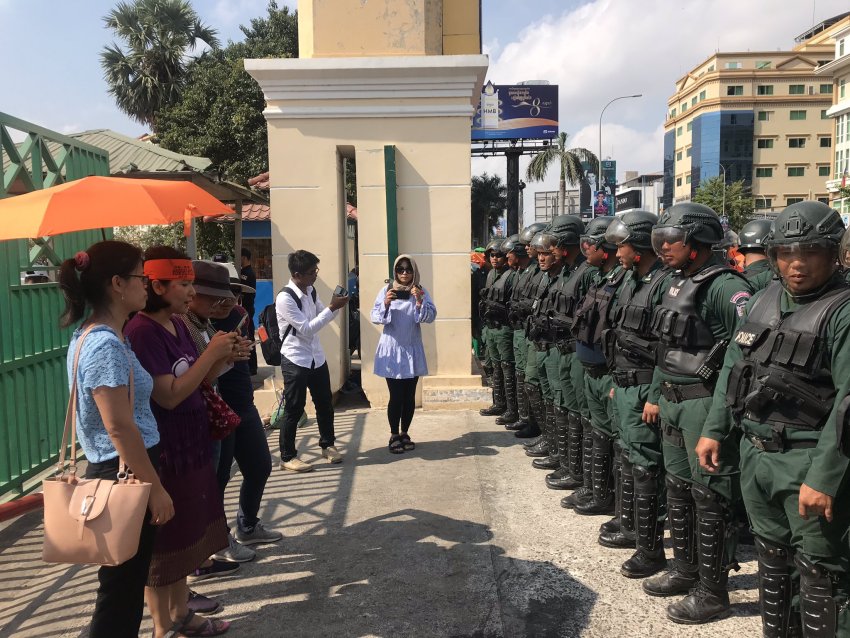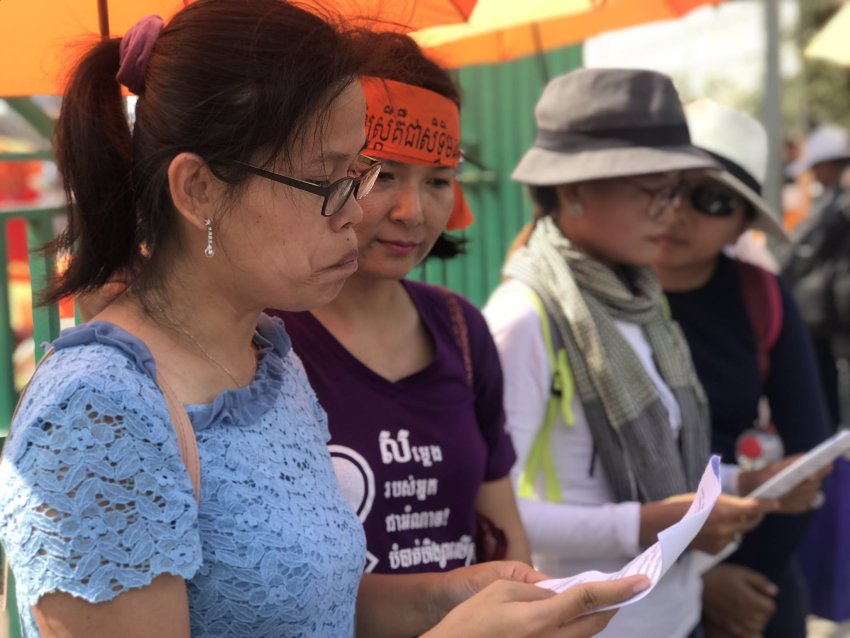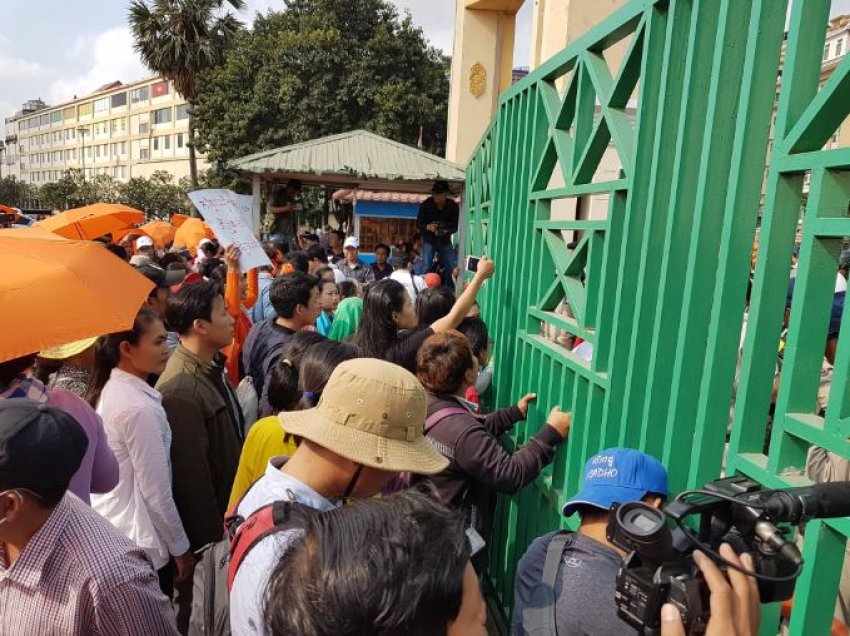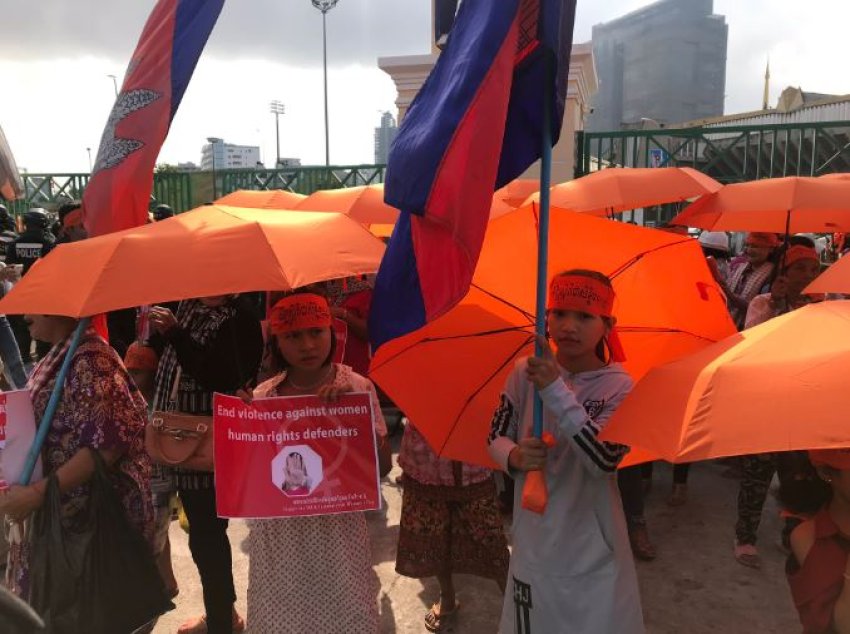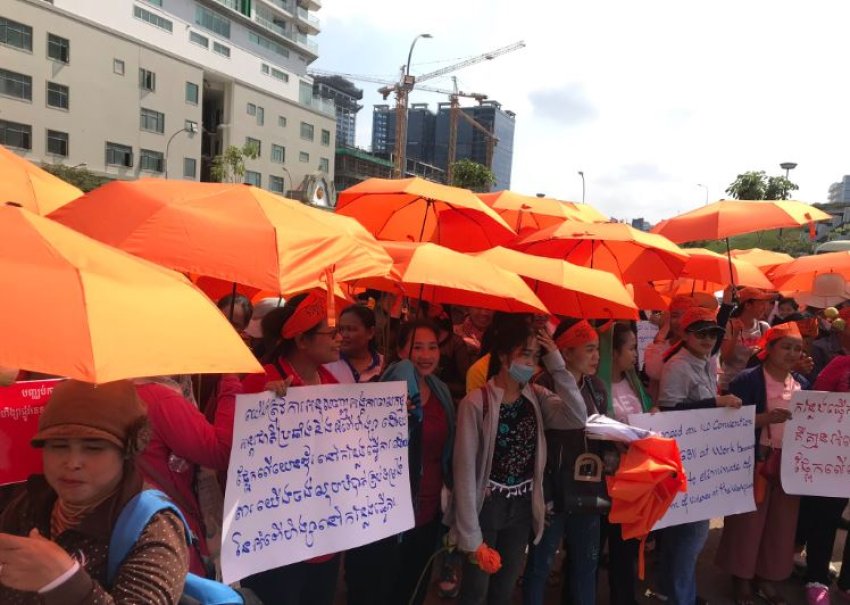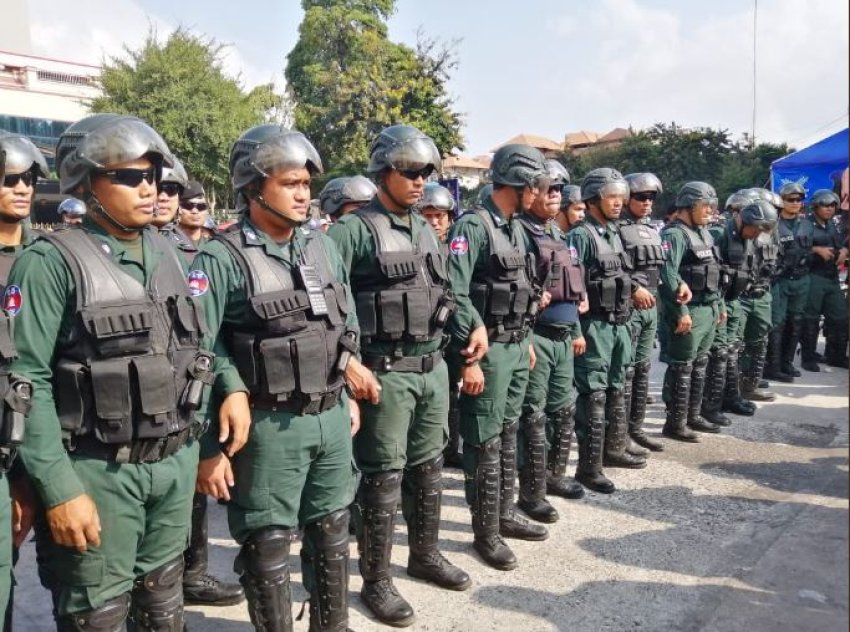A large contingent of riot police tried but failed to stop an International Women's Day march in Phnom Penh on March 8.
The march was organised by trade unions, associations and civil society organisations working to promote women’s rights and gender equality and was attended by about 400 people. Initially the police tried to stop the march, but under pressure relented and allowed a delegation of women to present a list of seven priority demands to the government.
These demands were:
- Provide community preschools and day-care centers at the workplace.
- Provide safe shelters for women suffering from domestic violence and for women domestic workers.
- Take action to end sexual harassment and sexual violence against women at the workplace with zero tolerance.
- Take action to stop the use of violence on women human rights defenders.
- Reform the transportation system for workers, especially those in the textile, garment and footwear industries.
- Improve working conditions and strengthen mechanisms to protect the rights of domestic workers.
- Strengthen mechanisms to protect migrant workers from exploitation, human trafficking and modern slavery.
Female workers and women in the informal economy face numerous challenges during their street vending and working hours, march organisers explained. They are forced to place their children on their pulling carts, carry their children while working, leave their children with neighbours or leave small children and infants alone at home.
According to Article 186 of the Law on Labour, managers of enterprises employing a minimum of 100 women or girls shall set up, within their establishments or nearby, a nursing room and a day care center. However, most workplaces have not yet established these centres.
When women suffer from domestic violence or when domestic workers suffer from violence by home owners, survivors often cannot afford to stay away from the perpetrators and do not have access to safe shelter to protect themselves. This allows perpetrators continued opportunity to threaten, harass and to use violence against the victims.
Women's organisations want the government to create one-stop service centers for victims of gender-based violence. Services provided should be of good quality, including counselling, legal advice, healthcare, provision of safe shelter, and security protection to women victims and their children.
They also want the authorities to actively support victims, ensuring their ability to file complaints to the court and their right to request protection orders.
Women workers in the entertainment industry, such as masseuses, beer promoters, casino workers and housekeepers at guesthouses and hotels face sexual harassment, sexual assault and violence from clients, supervisors or employers. They are often told to put up with the violence, or face dismissal.
Perpetrators can pay civil compensation to victims in exchange for having the case closed and being freed from criminal responsibility.
Women's organisations want labour inspectors to monitor all entertainment establishments to ensure protections, including zero tolerance of forced pregnancy testing, coerced or forced abortions, unfair dismissals or other discrimination against pregnant workers. Employers found to be mistreating women workers should be appropriately punished.
Wiomen's rights defenders have been threatened with physical and mental violence and their public meetings and marches to demand justice have often been obstructed.
The judicial system has been used to pressure and silence the voices of women human rights defenders, by placing them under investigation, arresting them and/or charging them with defamation or damage of private property.
Accidents have increasingly occurred on unsafe trucks transporting workers to and from factories. Trucks have not been regularly checked for technical compliance and have not installed safe seats, meaning that workers have to stand in overcrowded cages at risk from sexual harassment or drunk drivers.
A report by the National Social Security Fund (NSSF) showed that 563 workers were injured and 10 were killed in the first half of 2018. This report also revealed that about 20% of drivers in the garment industry do not have a drivers license.
The number of domestic workers in Cambodia is estimated at about 250,000 and a majority are women. However, domestic work is not covered by labour law.
Employers have a duty to register domestic workers for the NSSF to cover work accidents, health care and pensions. However, most employers have not yet complied. There is no compulsion to pay domestic workers a basic salary, for employment contracts between domestic workers and employers, or for maternity leave or public holidays.
Video: Cambodia's International Women's Day march met with riot police. Green Left.
